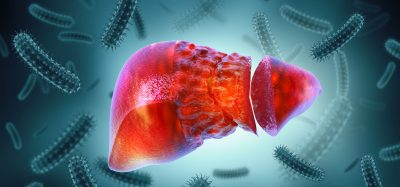Unexpected neuronal molecule makes prostate cancer more aggressive
Posted: 24 January 2023 | Izzy Wood (Drug Target Review) | No comments yet
US researchers discover a potential therapeutic avenue through the molecule NgR2, against an aggressive form of prostate cancer.


Scientists from Thomas Jefferson University, US, have discovered the key molecular players that drive prostate cancer to progress into a highly aggressive form of neuroendocrine prostate cancer, that currently has no effective treatment.
The findings, published in Scientific Reports, uncovers new avenues to explore for therapeutics to treat neuroendocrine prostate cancer.
Most prostate cancers are a type of disease called prostate adenocarcinoma. However, unlike prostate adenocarcinoma, neuroendocrine prostate cancer is very aggressive and can quickly spread to other parts of the body. Treatments that are effective for adenocarcinomas in the prostate do not work against neuroendocrine prostate cancers.
Biomarkers aren’t just supporting drug discovery – they’re driving it
FREE market report
From smarter trials to faster insights, this report unpacks the science, strategy and real-world impact behind the next generation of precision therapies.
What you’ll unlock:
- How biomarkers are guiding dose selection and early efficacy decisions in complex trials
- Why multi-omics, liquid biopsy and digital tools are redefining the discovery process
- What makes lab data regulatory-ready and why alignment matters from day one
Explore how biomarkers are shaping early drug development
Access the full report – it’s free!
Adenocarcinoma prostate cancers can progress into neuroendocrine prostate cancer. Until now, how this transition occurs has been a mystery.
“We have found novel pathways that promote neuroendocrine prostate cancer,” said senior author Dr Lucia R Languino, a professor in the department of Pharmacology, Physiology and Cancer Biology and director of the Genetics, Genomics, and Cancer Biology PhD Programme at Thomas Jefferson University.
To better understand how neuroendocrine prostate cancer develops, the team looked for biomarkers of the disease. In previous work, they discovered that a molecule known as aVb3 integrin is abundant in mice and humans with neuroendocrine prostate cancer, but absent in prostate adenocarcinoma.
To look for molecules unique to neuroendocrine prostate cancer, the scientists found that aVb3 integrin expression in prostate cancer cells bumped up the expression of a known marker of neuroendocrine prostate cancer and significantly increased the expression of a molecule called Nogo receptor 2 (NgR2).
The finding “was a big discovery,” Languino commented, because NgR2 is a protein found in nerve cells, where it contributes to neuronal functions. It has never before been studied in cancers.
An initial experiment revealed that NgR2 binds the aVb3 integrin. The scientists also saw that in mice with neuroendocrine prostate tumours, aVb3 integrin and NgR2 were both present in the primary tumour and in cancerous lesions that had formed in the lungs of the animals. A follow-up experiment made it clear that both aVb3 integrin and NgR2 are necessary for neuroendocrine prostate cancers.
When the team lowered the amount of NgR2 in neuroendocrine prostate cancer cells, neuroendocrine markers also decreased. The results suggest that NgR2 plays a role in the development of neuroendocrine prostate cancer. Lowering the amount of NgR2 also reduced the ability of cancer cells to grow and move, indicating that NgR2 may have a hand in cancer spreading to other parts of the body, in a process known as metastasis.
“These two molecules, aVb3 integrin and NgR2, seem to create a combination that is lethal,” concluded Languino.
She and her colleagues are now looking for a molecule or antibody that would block the effect of NgR2, or the aVb3 integrin/NgR2 complex, to inhibit their ability to promote neuroendocrine prostate cancer growth, and make the cancer more susceptible to therapy.
Related topics
Biomarkers, Disease Research, Oncology, Protein, Targets, Therapeutics
Related conditions
Prostate cancer
Related organisations
Thomas Jefferson University
Related people
Dr Lucia R Languino








